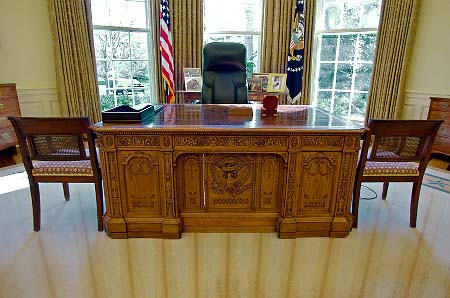 During the 2016
political season, there has been a lot of talk about temperament. Does this or that individual have the
temperament to be president of the United States? It would appear that there is little
agreement on what, exactly, constitutes temperament and which kind of character
is most desirable in a political leader.
During the 2016
political season, there has been a lot of talk about temperament. Does this or that individual have the
temperament to be president of the United States? It would appear that there is little
agreement on what, exactly, constitutes temperament and which kind of character
is most desirable in a political leader.
When dictionary
definitions are compiled, “temperament”
seems to include an individual’s general outlook on the world.
Does the candidate see
his/her environment as friendly? Hostile? Overwhelming? Competitive? Welcoming? Or
any other combination of characteristics that comprise his/her understanding of
the nature of humanity?
It is important to
try to gain an understanding of an individual’s belief system as decisions are
made on voting choices. Whoever is elected will be defining and interpreting
the tenor of events that affect citizens on a daily basis. This individual will
have the ability to propose legislation that seems fitting for the current
circumstances in local, national, and international events.
Temperament is made up
of many different characteristics. One
can be fearful and uncertain while believing in the value of equality among
people. Another may appear to be driven
and confident, and yet, see the world as a place where survival of the fittest
is the rule.
Because it is so
complicated, it is impossible to fully discern an individual's nature. Some beliefs will be apparent and some hidden. The uncertainty that results from what is
unknown results in confusion in the voting booth.
Trust has become a
major issue. Polling results indicate
that neither candidate, Secretary Clinton or Mr. Trump, inspire confidence in
the veracity of what each has to say. Who is being candid and who will shape their stated views only to engage
voters? Who is inflexible and who is open-minded?
History tells us that
Abraham Lincoln had the best possible temperament for his time. It is said that Lincoln was able to listen to
his heart and his head. This would imply
a profound self-knowledge and an impressive balancing act.
That he understood the
way he understood is remarkable. The ability to withdraw self-interest and to
hear with compassion and empathy is not often found in the political arena.
Lincoln suffered the
loss of his mother at the age of nine. After that, a brother and sister died. Lincoln’s reaction to these
losses helped him to understand the nature of deprivation. Rather than be weighed down by anger and
fear, Lincoln rose above his situation and used it to deepen his understanding
of human nature.
It is notable that he
was known as “Honest Abe”. Even those who disagreed with Lincoln could
acknowledge his efforts toward fairness and equality.
It has been reported
that Lincoln always felt a sense of purpose. This is what drove him to achieve the levels of not only education but
of wisdom that he offered to a very divided country.
Abraham Lincoln did not
disparage those holding views that were different from his own. It has been documented that his extraordinary
capacity for empathy together with his curiosity and kindly nature allowed him
to learn and work with those who saw the world through a different lens. He was able to grasp the importance of
emotions and the need to be heard.
In the 21st century,
there is no consensus on the value of an empathetic leader. Bernie Sanders’ behavior during the 2016
election period epitomized the conduct of an individual who leads through
caring. Mr. Sanders’ appeal, especially
to young voters (Millennials) grew as he addressed the issues that concern
them. College debt and the lack of jobs
are big items with that group, and Sanders addressed these concerns directly.
Sanders’ presentation
did not feel rehearsed or sloppy. The Millennials
believed that he spoke from his heart - a 21st-century representation of an
empathetic leader. This trust is what
allowed Sanders to amass a surprising number of votes despite the fact that he
was a self-described socialist, 74 years old, and had only recently become a
Democrat after years of declaring himself to be an Independent.
Although Mr. Sanders
did not win the Democratic nomination, he was able to impressively realign the
Democratic platform toward a more Progressive stance than at any other time in
history.
In 1933 Justice Oliver
Wendell Holmes remarked that Franklin D. Roosevelt had a second class intellect
and a first-class temperament. At the
time that Roosevelt ascended to the Presidency, the United States was mired in
the Great Depression. Roosevelt was able
to discern the need for a feeling of safety among the populace. He was a gifted orator and showman and had
the temerity to put new programs in place that were sponsored by the Federal
government.
Roosevelt was stricken
with polio in 1921. He never regained
the ability to walk without assistance. It has been suggested that the physical pain he suffered both hardened
him and made him more sensitive to others. One of his most appealing attributes was his ability to enjoy the
company of many types of individuals:
wealthy, impoverished, well- and uneducated. His genuine regard for those who had merely
survived The Great Depression, and were still struggling to provide for their
families was felt by those who met him personally and/or listened to his radio
broadcasts.
Historically, people
have responded to optimism in their leaders. Both Lincoln and Roosevelt offered hope in times when circumstances were
desperate. As children look to their
parents and caretakers to guide them through life’s stumbling blocks, so do
voters look to their elected representatives to show and lead the way to a
better life. When focusing on what needs
fixing an attitude of hope and “can do” is far preferable to a feeling of
hopelessness and despair.
Research tells us that
temperament is an innate, inborn trait. Personality is outward-directed and can be adapted to any number of
situations. We are born with certain
sensitivities, intellect and instinctive likes and dislikes. It is possible to manage our temperament, but
it remains rooted in the core of who we are. Behavior, on the other hand, can, if the subject is willing, be altered in many directions.
Whoever is elected to
the Presidency in 2016 will always be who they are. What they do is less predictable. These are considerations to keep in mind as
November 8th approaches.
References:
Arlandson, J. (2015, August 2). Presidential Temperament and Trump.
Retrieved October 9, 2016
Drexler, P. (2016, September 27). How Important is Presidential
Temperament. Retrieved October 9, 2016
Graubard, S. (1989, August 20). FDR in the Middle Years:The Showman.
Retrieved October 9, 2016
Malhotra, N., & Margalit, Y. (2016, August 1). Do U.S. Voters
Prefer Optimistic Politicians? Here's What We Found. Retrieved October 9, 2016
Manion, L. (2016, January 12). Temperamental Presidents: One FDR, a
First-class Temperament sure, but a First-class Intellect Too. Retrieved
October 9, 2016
S. (2016, August 1). Review of a First-Class temperament: The
Emergence of Franklin Roosevelt. Retrieved October 9, 2016
About the Author

Ruth Gordon
, MA/MSW/LCSWI bring with me +30 years of experience as a clinician. My Masters degrees are from: Assumption College, Worcester, MA, Master of Arts in Psychology & Counseling/ and Boston University School of Social Work, Boston, MA, an MSW in Clinical Social Work. This is the 11th year I have written a monthly newsletter that is sent to approximately 500 individuals. The archive can be found on my website, www.foreverfabulousyou.com.
Office Location:
The OC Building, 11983 Tamiami Trail, N., Naples, FL 34110
Naples, Florida
34110
United States
Phone: 239 293-4314
Contact Ruth Gordon
Professional Website:
www.foreverfabulousyou.com